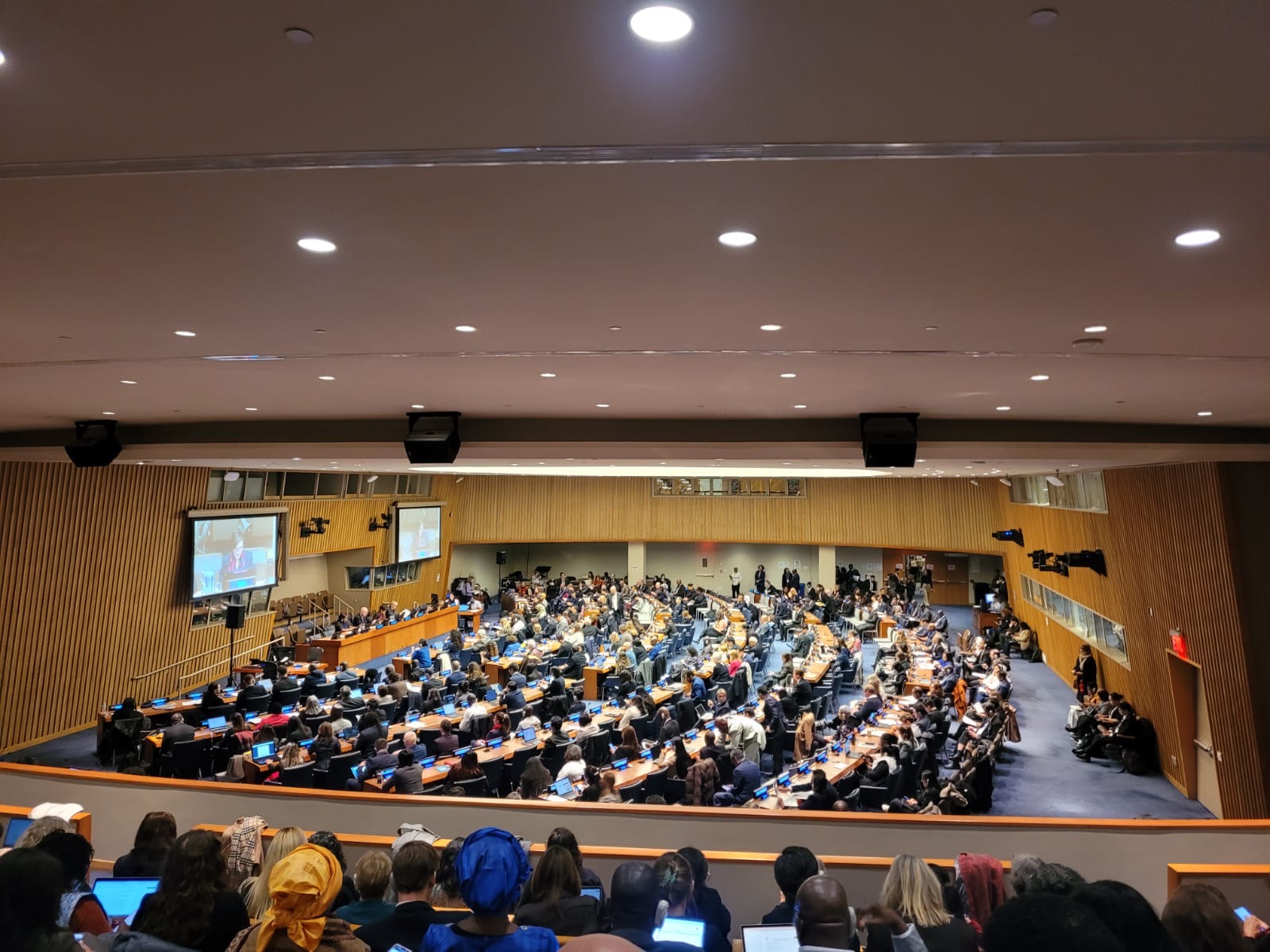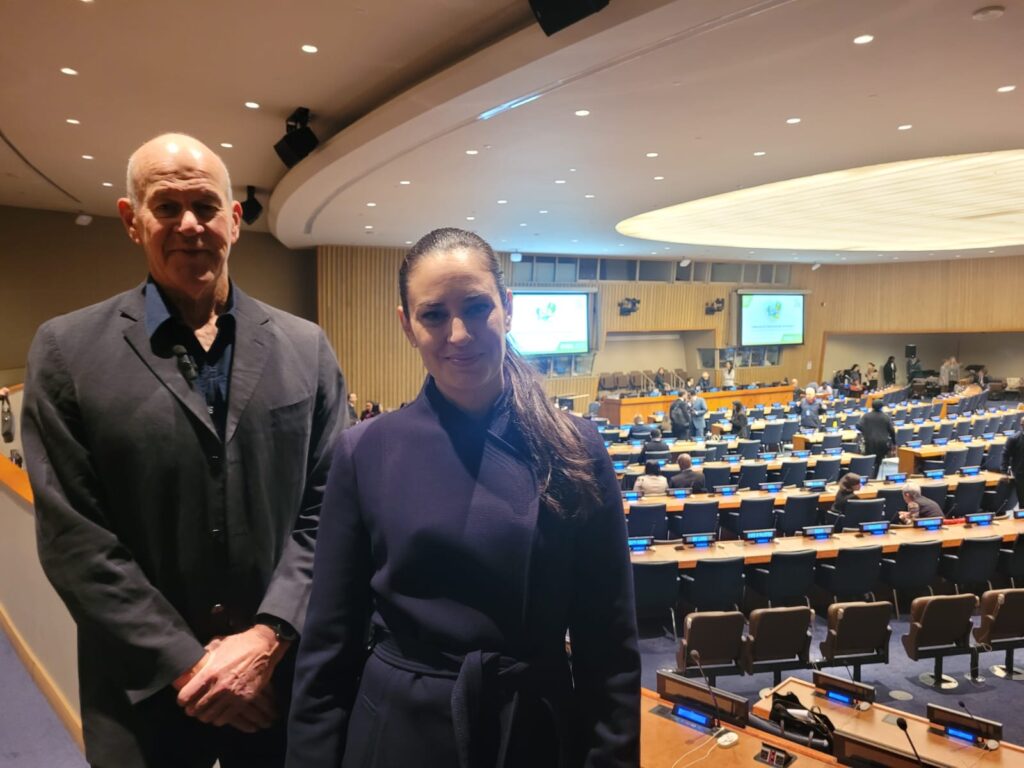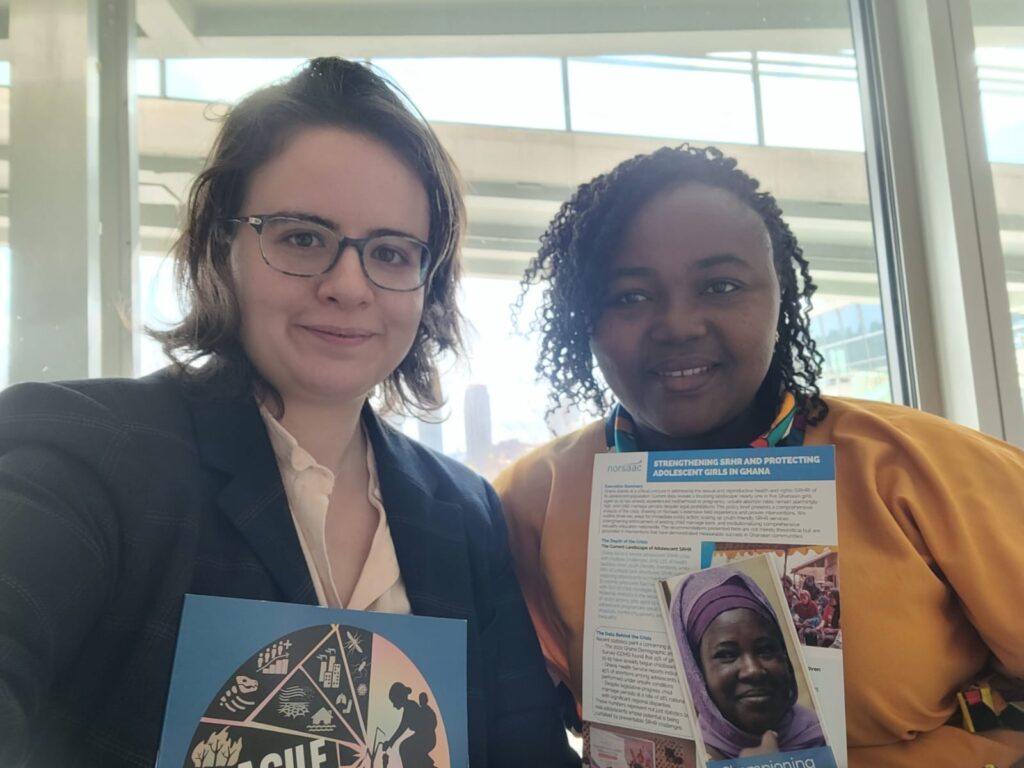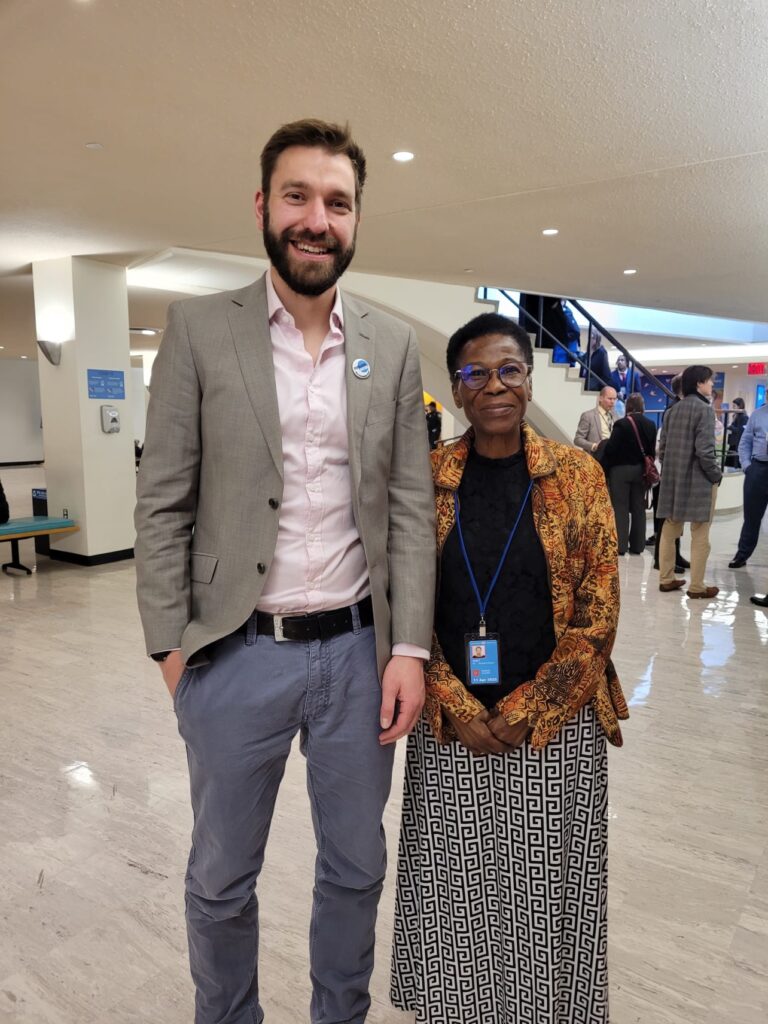
Fragile Futures: Speaking Up for Children’s Lives in a Changing World
This week, Population Matters is in New York, bringing our new Fragile Futures report to the 58th Session of the Commission on Population and Development (CPD58). The evidence is clear: child deaths could exceed United Nations (UN) projections this century. Governments at the meeting have acknowledged that conflict and climate change are straining health systems — and that greater investment is urgently needed.
“Let there be no doubt that we should have deep concern about what’s happening in the future, particularly for children.”
Fragile Futures author, Professor Peter Le Souef
The Fragile Futures report makes one thing crystal clear: as climate change accelerates and population patterns shift, the risks to children’s lives are likely to grow, which is something the UN does not account for in their current projections. Population Matters has a small delegation in New York this week to present the findings of the report and engage decision makers, including two of the report’s authors, Professor Peter Le Souef, a Paediatrician, and Dr Melinda Judge.

These issues were echoed in the joint CPD58 statement, delivered by Sierra Leone on the first day on behalf of multiple countries, including the UK. It emphasised the urgent need for investment to achieve international health goals, and the United Nations Population Fund (UNFPA) stated that:
“…allocating an additional $79 billion by 2030 to expand maternal health and family planning services could yield $660 billion in economic benefits by 2050—preventing 400 million unplanned pregnancies.”
Governments also warned that “conflicts and climate change are straining health systems.” Population Matters has also called for greater investment and political action on these issues.
What the Climate Crisis Means for Children’s Health
On 8 April, we presented the Fragile Future findings. Representatives attended from the UNFPA, the National Statistical Office of Malawi, the Mexican National Citizen Council on Population, as well as delegates from the Asian-Pacific Resource & Research Centre for Women (ARROW) and the Ghanaian organisation Norsaac.

We found an engaged audience, eager to discuss population and take forward the findings of the report. Dr Yasmeen Sabeeh Qazi, CEO of QZ Catalyst – an organisation working on family planning and health in Pakistan, commented:
“Population does matter. Let’s start talking about it.”
Dr Joan Castro, Executive Vice President of PATH Foundation Philippines, and Wendo Sahar, Executive Director of Dandelion Africa in Kenya, also shared their evidence in powerful video contributions, offering compelling insights from their work with local communities.
“Despite their minimum contribution to climate change, newborns and children bear 88% of the disease burden linked to climate change.”
Wendo Sahar
Watch the side event back
Our Chief Research and Operations Officer, Josh Hill, observed: “The intersection of population and health outcomes seemed to be readily accepted and understood and there was a real momentum to continue the discussion in various forums.”
Population Matters was encouraged that representatives from UNFPA attended the discussion, and now working to connect with their data team to help improve future UN’s projections.
The need for funding is ever critical
One uncomfortable truth loomed over every conversation at CPD58 — even when it went unspoken. No matter how compelling the case or how strong the calls for action, progress on child health will stall without funding. And right now, funding is disappearing fast.
The opening session at CPD58 failed to acknowledge the unprecedented global shifts in aid cuts – that USAID, one of the largest global funders of maternal and health services, had recently slashed its aid budget by 83%. Then, other governments, including the UK and in Europe, swiftly took similar steps.
However, Margaret Edison, Director of Population Management and Development at Nigeria’s National Population Commission—and a familiar face to Population Matters from our Nigerian Population Conversation—broke the silence.

Speaking during a Population Council side event, she addressed the reality head-on. “We need to resist depending on donors, start generating our own funding. Whoever owns funding has the right to withdraw it,” she said. She also highlighted the urgent need for her own government to show leadership: “Nigeria has the money,” she said, “but it needs to be mobilised better.”
Edison continued: “We need to get better at communicating the end results – [without family planning] women are dying, children’s health is worse.” Her words were a powerful reminder that the solutions we’re advocating for need both political will and proper investment.
Putting words into action
CPD58 has shown encouraging signs that the link between climate change, population dynamics and child health is being taken more seriously. In the weeks and months to come, Population Matters, along with its partners, will be ensuring that government pledges and statements are delivered into practical action.
Watch the full discussion on this page for first-hand insight into the challenges — and the growing momentum — to deliver better health outcomes for children and our planet. Please sign up for our email updates here and be part of our movement as we push for change.



